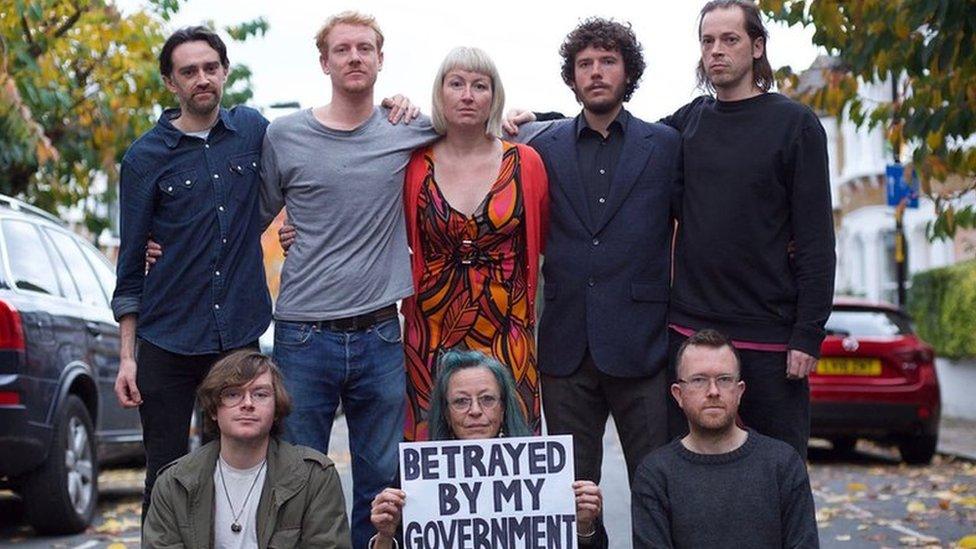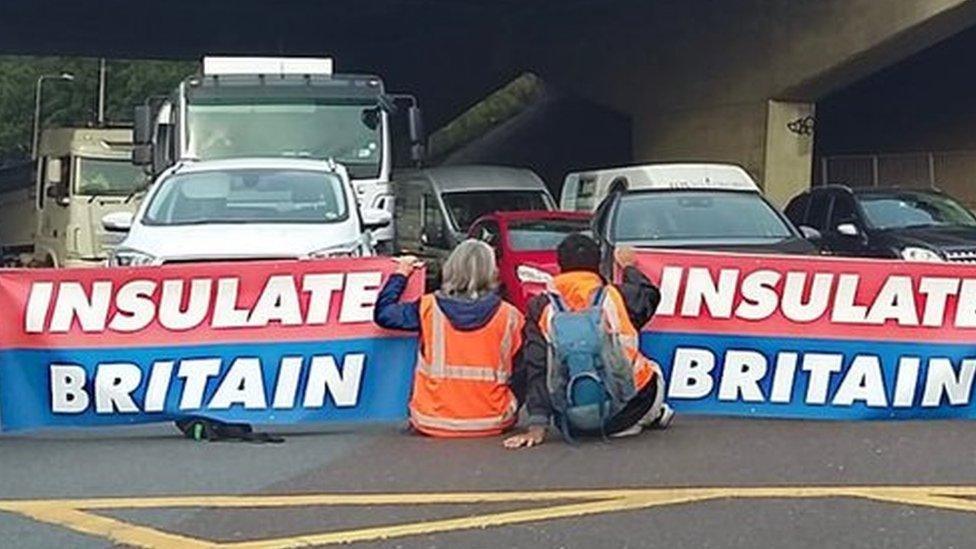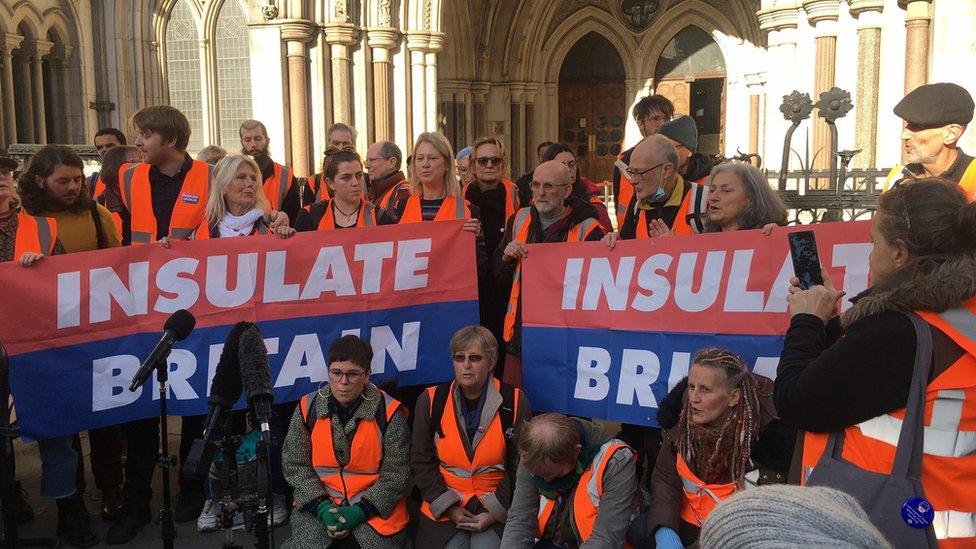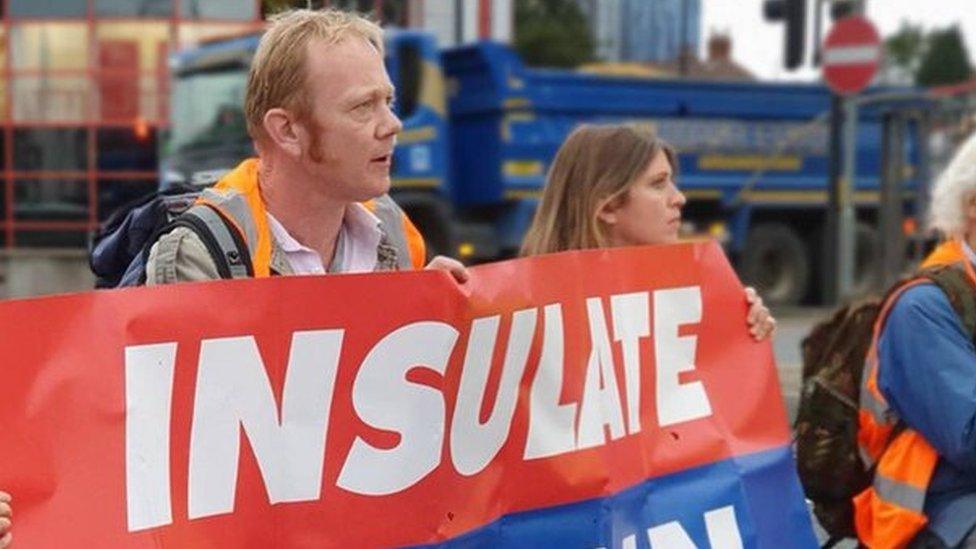Insulate Britain protesters jailed for defying road blockade ban
- Published

Activists began a wave of protests two months ago, blocking the M25, roads in London and elsewhere in the UK
Nine Insulate Britain protesters have been jailed for breaching an injunction designed to prevent road blockades.
Activists began a wave of protests two months ago, blocking the M25, roads in London and elsewhere in the UK.
Ana Heyatawin, 58, and Louis McKechnie, 20, were jailed for three months while Dr Ben Buse, 36, Roman Paluch-Machnik, 28, Oliver Rock, 41, Emma Smart, 44, Tim Speers, 36, and James Thomas, 47, all received four-month sentences.
The group vowed to continue protesting.
The submissions made by Ben Taylor, 37, to the court on Tuesday were described by Dame Victoria Sharp as "inflammatory" and a "call to arms", and he was therefore given a longer sentence of six months "to deter (him) from committing further breaches".
The judge, sitting with Mr Justice Chamberlain, said there was no alternative to custodial sentences given that the group's actions were so serious and they had made it clear they intended to further flout court orders.
She said: "The defendants, or some of them, seem to want to be martyrs for their cause and the media campaign surrounding this hearing appears designed to suggest this.
"We, however, have to act dispassionately and proportionately."

The protests have sparked anger among motorists and others affected by the blockades
The group and their supporters chanted "We are unstoppable, another world is possible", as they were led to the cells through the dock by security officers.
An Insulate Britain activist addressing the media outside the Royal Courts of Justice said Emma Smart, one of the nine, had announced her intention to go on hunger strike after being jailed for four months.
The High Court has so far issued five injunctions to prevent protesters from blocking roads.
They include four injunctions granted to National Highways, banning demonstrations on the M25, around the Port of Dover and on major roads around London, and one to Transport for London (TfL).

An Insulate Britain activist addressing the media outside the Royal Courts of Justice said Emma Smart, one of the nine, had announced her intention to go on hunger strike
TfL was granted a civil banning order aimed at preventing protesters from obstructing traffic on some of the capital's busiest roads.
Those who breach the injunctions could be found in contempt of court and face a maximum penalty of two years in prison or an unlimited fine.
UK Transport Secretary Grant Shapps said every motorway and major A-road in the country is now covered by injunctions.
"Anyone who causes misery to motorists may face prison," he tweeted.
Allow X content?
This article contains content provided by X. We ask for your permission before anything is loaded, as they may be using cookies and other technologies. You may want to read X’s cookie policy, external and privacy policy, external before accepting. To view this content choose ‘accept and continue’.
Lawyers representing National Highways said the nine all admitted flouting a ban on protests on the M25, which was granted by a High Court judge on 21 September, by taking part in a blockade of the motorway on 8 October.
- Published16 November 2021

- Published27 October 2021

- Published13 September 2021
